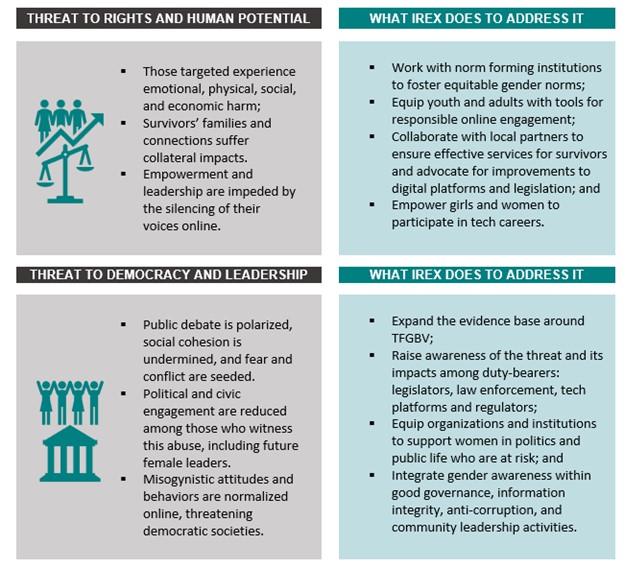Overview
Online abuse targeting women in digital spaces is an increasingly widespread problem. Known as technology-facilitated gender-based violence (TFGBV), it is a pervasive threat to democratic values, human rights, peace, security, and safety of individuals and societies worldwide. While increased access to technology provides opportunities for economic growth, access to education, and gives voice to unheard populations, technology-facilitated gender-based violence drastically diminishes these benefits, particularly for women. Globally, 85% of women have witnessed online violence against other women, and nearly 40% of women have experienced online violence themselves.
In addition to its toll on those experiencing and witnessing this abuse, the subsequent reduction of women’s public and political participation impacts institutions, communities, and nations by exacerbating the global trend of polarization and digital authoritarianism.
While universally pervasive, the origins, targets, and impacts of technology-facilitated gender-based violence are highly contextual and require locally designed solutions. Addressing the violence effectively requires collaboration with diverse stakeholders – including accountable parties, support organizations, bystanders, and survivors—to alter the norms and behaviors that contribute to violence on online platforms; to mitigate the consequences of harm that has occurred; and to support women to participate equitably in civic and political life.
